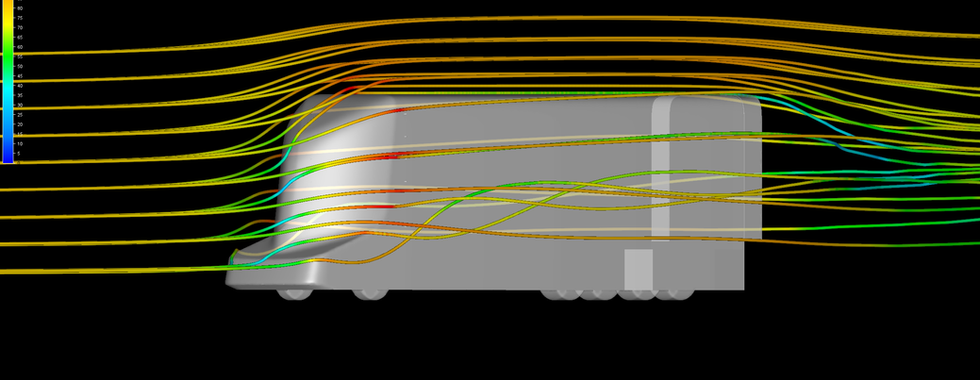Vision HDRT: Rethinking the Future of Freight Mobility
- Niwwrd

- Jul 24, 2025
- 2 min read
The future of freight transport isn't just about going electric. It’s about going intelligent, efficient, and autonomous. The Vision HDRT (Heavy Duty Robot Truck) is a design concept that brings this future into sharper focus. Developed as part of the Master Engineering Design program at Magdeburg Stendal University of Applied Sciences in Germany, this bold concept is more than a styling exercise. It’s a serious rethink of how freight can move on tomorrow’s roads.

Autonomous. Efficient. Electrified.
Designed by Daniel Glatthaar and Konstantinos Paschalis in collaboration with the German Aerospace Center (DLR) Institute of Vehicle Concepts, and supervised by Prof. Jan Bäse and Robert Hahn (DLR), the Vision HDRT proposes an ecosystem of self-driving trucks that operate in intelligent convoys.
The idea is simple in principle but powerful in impact. A lead vehicle, powered by a plug-in hybrid system that includes both a hydrogen fuel cell and a battery, sets the pace. Following behind are multiple autonomous trucks, powered wirelessly through conductive charging from the lead vehicle. This setup reduces drag across the fleet thanks to tightly controlled aerodynamics and significantly cuts fuel consumption and emissions.
Intelligent Convoying
By using convoying or platooning, the design dramatically improves road freight efficiency. The tightly spaced vehicles reduce overall air resistance, much like cyclists riding in formation. The wireless power transfer system keeps the fleet running while minimizing downtime and infrastructure dependency.
Communication by Design
Vision HDRT isn’t just smart on the inside. Its exterior incorporates advanced audiovisual communication systems such as lighting elements, displays, and signals that interact with pedestrians and other vehicles. These systems help ensure safety, awareness, and trust in the truck’s autonomous behaviour.
A Vision Grounded in Engineering
What sets Vision HDRT apart is the engineering rigor behind it. This isn’t a speculative rendering. It’s the result of structured research, conceptual validation, and academic-industry collaboration. With Germany’s DLR as a partner and under the guidance of experienced faculty, the project balances design thinking with real-world feasibility.
A Blueprint for Tomorrow
As the freight industry grapples with rising demand, climate responsibility, and driver shortages, Vision HDRT points toward a future where logistics is not only cleaner and smarter but also safer and more connected. It shows what’s possible when design, technology, and infrastructure thinking converge.























































































































Comments